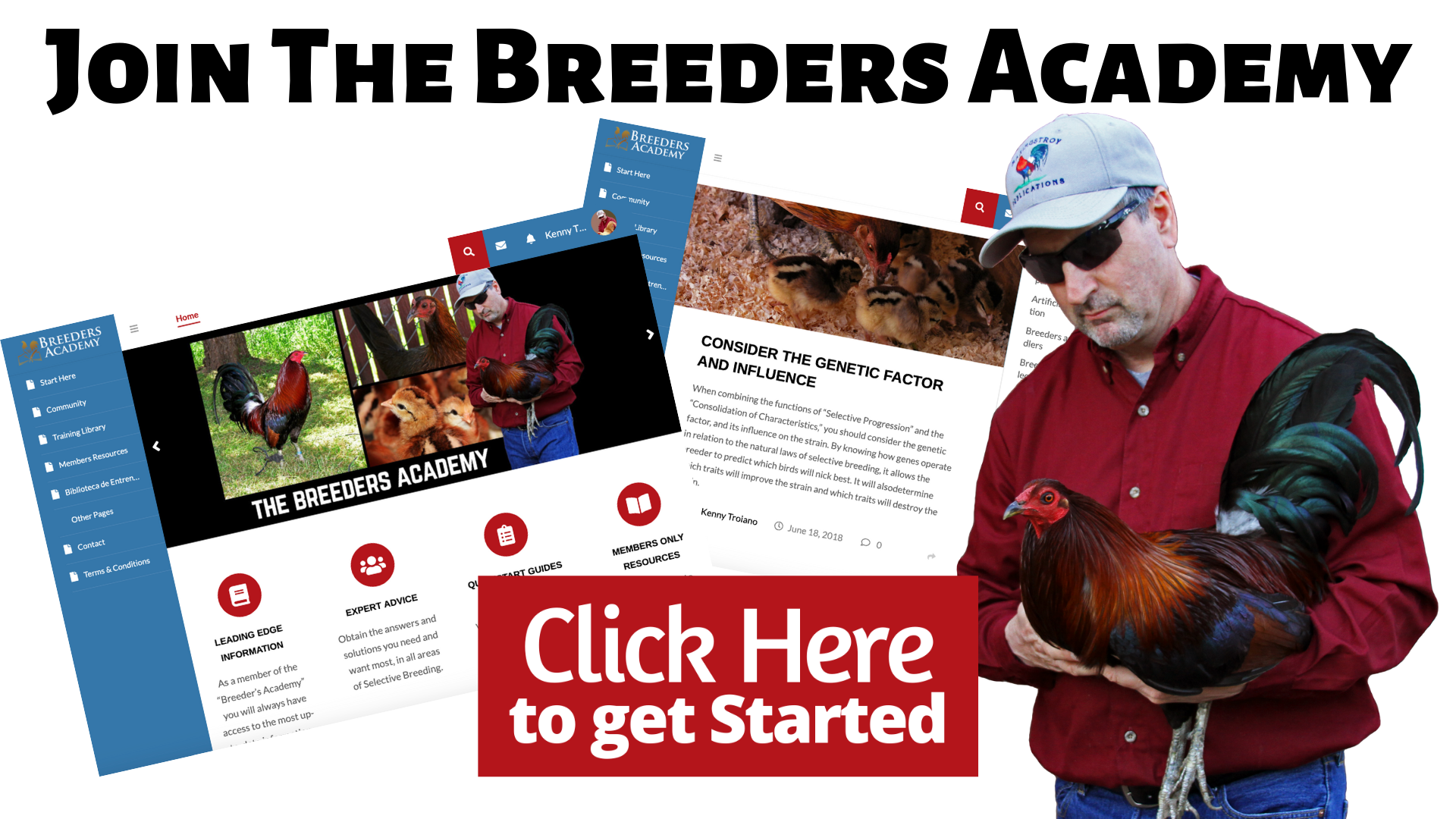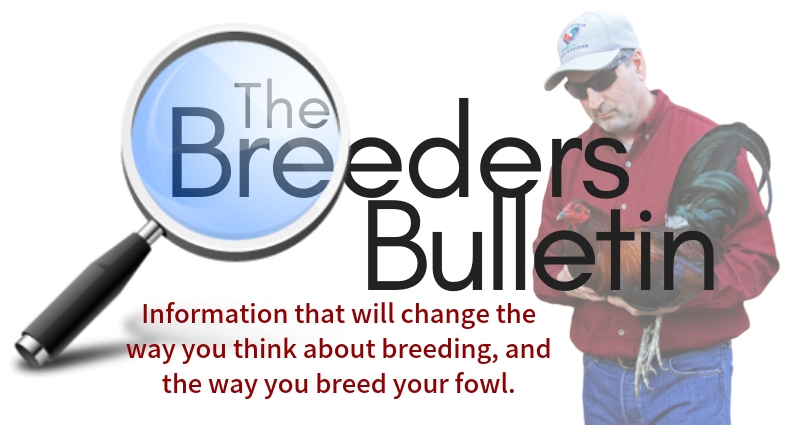How to adapt fowl to their new environment
By Kenny Troiano
Preparing fowl for a new environment is as important as the fowl themselves. They must adapt easily and quickly to be successful, and there are many things you can do to help them in the process.
I know for a fact that when you take a cock or hen from one environment to another (one location to another location), the new environment can change that bird entirely. Some fowl get worst, while others get better. For instance, a cock raised on the East Coast may, for some reason or other, act like a complete cull. But if he is in good health, and you were to move this same cock to, let’s say, the West Coast, to another breeder’s yard with different surroundings, in just a few days you may see a noticeable change in him. All of a sudden he looks and acts great. This can work in the other direction as well. He may be a wonderful cock until moved to a new environment. All of a sudden he is a cull. There are several reasons for this, and there are many things you can do to prevent it.
Anytime you buy fowl from another breeder, whether it be the so-called big-time breeder or a small backyard breeder, and move them to your yard, the first thing you should do is to make sure they get plenty of water. Dehydration can have a devastating effect on them. The next act is to treat them for internal and external parasites, such as lice, mites and worms. Clean them up good. Parasites can certainly cause a bird to act like a cull.
It is a good idea to practice good preventive care measures, and create a program that will keep your fowl healthy 365 days of the year. However, most people who offer fowl, for sale, simply feed and water their chickens and do not treat them to good green grass and proper exercise, and never give their fowl fruits, such as apples, bananas, grapes, lettuce, tomatoes, etc.
Proper nutrition and exercise, especially for these newly purchased fowl, can make a lot of difference in how they adapt to their new surroundings, as well as their general health and mental well-being, especially if you treat them to such things as fruits, vegetables and good green grass.
It has been my experience that if you can get your fowl mentally and physically right, and make them like you, they will often prove themselves, and show that they are not a cull after all. Then again, some fowl are culls and there is no changing that fact no matter what you do.
How long does it take for acclimation to occur?Drastic changes of climate and diet have a peculiar effect on broodfowl, and it sometimes takes a long while to fully readjust them to the changed conditions, especially when broodfowl are brought in from distant locations, such as from far south to far north. I haven’t noticed this problem so much for the east to west and west to east shipments.
I have noticed a few cases where fowl were more likely to throw weaklings in their first hatch than in following years when they had become fully acclimated to their new surroundings. In one instance, a fine pair of broodfowl was brought in from far south in early fall and bred the following spring. There was an astounding difference in the vigor of the young that year from those of the following spring, which were hardier and better in every way, although, there had been no change in the diet of the broodfowl from one year to the next, and weather conditions were practically the same. Climatic adjustments of the different latitudes seemed to be the only explanation.
It is best to give fowl ample time for such adjustments, especially if brought from different latitudes than your own. I hardly think a year is necessary in every case, but at any rate, one may expect better results from imported fowl the second year.
Another thing you can do for cocks when you first bring them home is to put a hen in the pen with them for the first week. This makes them feel right at home, and after you remove the hen, you can begin the process of familiarization.
I hope you enjoyed the newsletter, and that the information which I provide helps you in advancing your family. Remember, if we all work harder to perpetuate superior fowl, fowl that have the complete package (appearance, temperament and performance), everyone benefits.
Hope you have a great breeding season.
Sincerely,
Kenny Troiano

